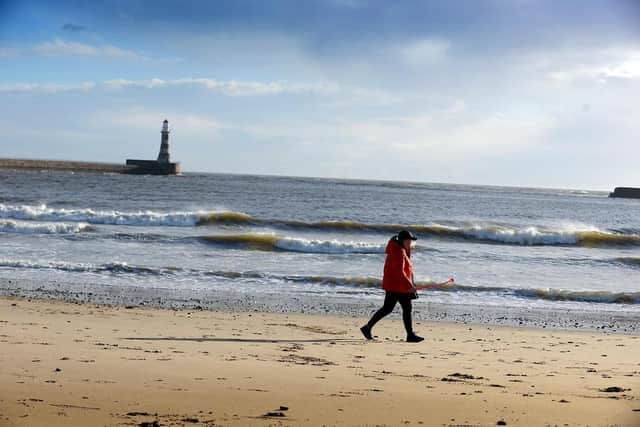Storm Gladys: How to deal with storm damage in preparation for severe weather conditions
Storm Franklin is the latest storm to sweep the nation and another storm is expected to develop this week after the Met Office reports more gales and snow this week.
Insurance expert at Forbes Advisor, Kevin Pratt, has revealed his tips for how people can prepare themselves for more extreme weather.
1 - Check for storm damage
Advertisement
Hide AdAdvertisement
Hide Ad

When a storm - in this case Franklin - is in the weather forecast, that’s a cue to check around your property and take precautions necessary to prevent maximum risk of damage.
However, firstly it’s important to be realistic. Don’t be tempted to climb on the roof looking for loose tiles or aerials, or to inspect and clear out your gutters - leave this work to the professionals. If you notice something concerning from the ground, make sure a contractor is available at short notice, but don’t put your safety at risk.
Eunice travelled eastwards across the country, so the prevailing winds came from the west. This meant walls facing east should have provided a modicum of shelter.
2 - Check gates, fences, trees and bushes
Lock all gates and secure loose panels wherever you can. Make sure you can safely remove damaged branches that look vulnerable to windy weather, but always approach such tasks with safety in mind, especially if it involves using a ladder, climbing, or using powered equipment.
Advertisement
Hide AdAdvertisement
Hide AdSome trees, including those on private land, can only be removed with the permission of the local authority.
3 - Secure loose items
If you have a garden or balcony, make sure there isn’t anything that could be blown over or damaged by the strong winds. Whether it is a children’s toy, equipment such as a trampoline, a BBQ, tools or garden furniture. It is also worth moving window boxes onto the floor until Franklin has been and gone.
You must also move your rubbish and recycling bins out of the path of the wind where possible, or ensure that they are full and heavy enough not to be swept away by the storm.
4 - Close your windows
If you routinely have a bathroom window open, for example, close it when the storm arrives to prevent it from flying open.
5 - Consider your pets
Advertisement
Hide AdAdvertisement
Hide AdYour pets won’t want to head out into the storm, so make sure they get their exercise in advance if you can. They might also be upset by the noise, so be prepared to comfort and reassure them.
6 - Keep stuff handy
It would be useful to keep a torch, candles and matches handy and make sure your phone is fully charged in case there is an interruption to your power supply. In the unlikely event you might have to leave your home in a hurry, make sure you have got essentials such as appropriate clothes and shoes and any medications you require.
Mr Pratt said: Homeowners will turn to their insurance policies if their property is damaged - buildings insurance for structural problems, contents cover for damage and loss to belongings.
“If there is damage, it’s important to contact your insurer straight away, so remind yourself where your policy documents are, either filed away or on your computer. And it’s worth taking photographs or a video as a record. Don’t undertake any major repairs or employ a contractor until you’ve discussed the situation with your insurer - they may have a network of their own you can use.
Advertisement
Hide AdAdvertisement
Hide Ad“Don’t throw anything away, again until you’ve cleared things with the insurer. If staying in the property is dangerous, your insurance may pay for the cost of temporary accommodation.
“Home insurance really shows its value in the wake of a storm. If your property is left uninhabitable, your buildings insurance policy may cover the cost of alternative accommodation. You may even be able to claim for the cost of putting your pets into a kennel or cattery if they can’t come with you.
“It’s your contents insurance which will cover the cost of replacing items such as furniture, and other possessions. Buildings insurance covers structural damage. If you’re renting, your landlord should have buildings insurance. Contract them as soon as you can so they can give you help and advice.”
Comment Guidelines
National World encourages reader discussion on our stories. User feedback, insights and back-and-forth exchanges add a rich layer of context to reporting. Please review our Community Guidelines before commenting.